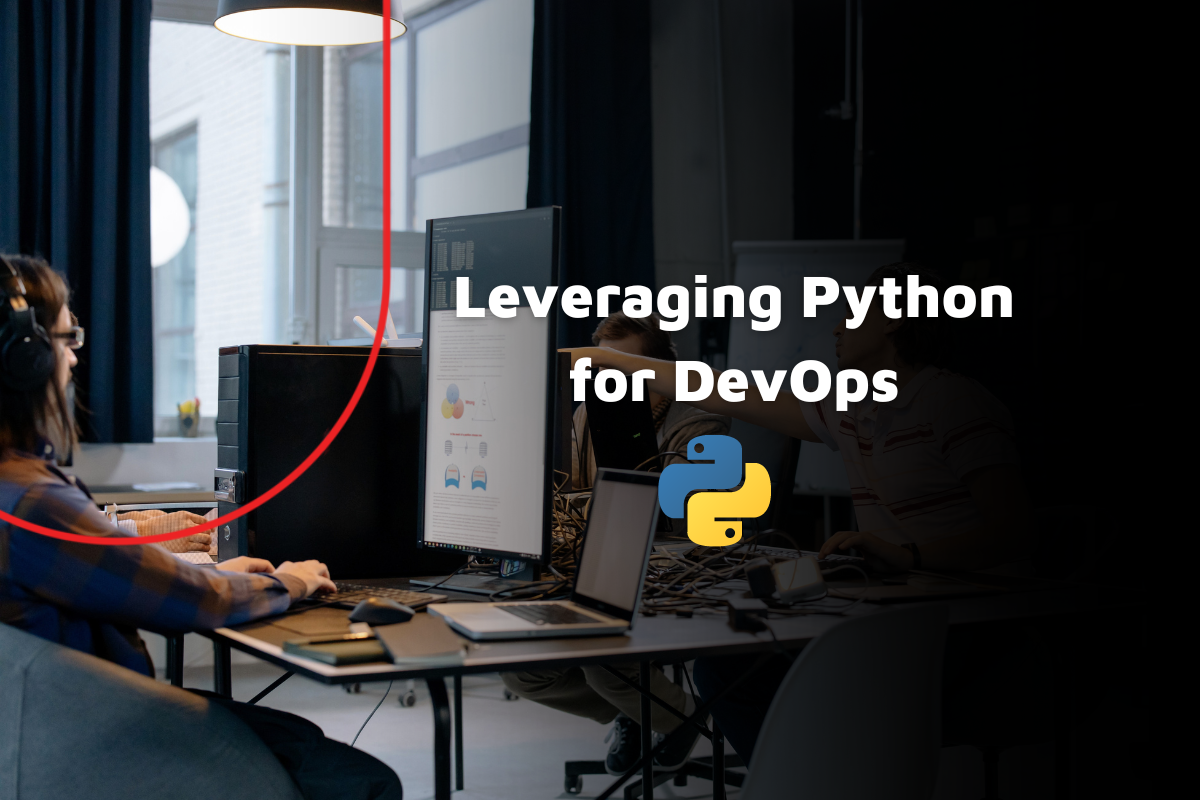Leveraging Python for DevOps, how to get started
7 March 2023 | Noor Khan

Python is one of the most popular programming languages in the world due to its versatility. Many of the world's leading technologies are built on Python including DevOps technologies such as Ansible and Docker. Python is the programming language of choice for many DevOps engineers due to a number of benefits on offer. In this article, we will look at leveraging Python for DevOps and how you can get started.
Why Python for DevOps?
As mentioned Python is a preferred programming language for DevOps and the reasons for this include:
- Open source – Python is open source, so it is free to use which makes it widely accessible.
- Highly adaptable – Python is possibly one of the most versatile technologies which can drive automation, Machine Learning (ML), data science and much more.
- Wide variety of libraries - According to InterviewBit, Python has over 137,000 libraries, making it the ideal choice for DevOps due to its flexibility.
- Easy to learn – Python is considered an easy and simple programming language to learn, especially when compared to others such as JS.
- Multi-purpose – Python can be used across DevOps operations ranging from actually developing apps, and automating workflows to data visualization.
- Automation – Automation if one of the core pillars of Develops and that is where Python really comes to shine.
Leveraging python for DevOps
Many technologies on the market can be used for each stage of the DevOps life cycle. For example, Bitbucket and Git for CI, to AWS Code pipeline, Azure DevOps, AWS CDK, Cloud formation or Terraform for deployment. However, they may present limitations for your requirements. Therefore, Python can offer customizability with the ability to adapt the system to suit your specific needs. Python can be leveraged for effective DevOps operation across several DevOps lifecycle stages including:
Monitoring
Although you may look to use popular monitoring and alerting tools such as Pager Duty, you may require a customised approach which is where python comes into play. Easily create python scripts, and use relevant SDK or custom modules to automate monitoring and alerting of your software, applications and systems. Additionally, libraries such as psutils can be used for monitoring purposes.
Deployment
Python enables DevOps engineers to script the deployment of applications and software using popular python modules Cuisine, Fabtools and Fabrics.
Automating CI (Continuous Integration/ Continuous Deployment)
Python can help automate CI/CD with pipeline automation, which enables efficiency and save significant time and resource.
Customizing python technologies
As mentioned earlier, some of the leading DevOps technologies such as Ansible are built on Python. In the case of Ansible, Python can actually be used to create custom modules.
Automated testing
Automating testing is essential in reducing the time to go live and python can also support the automation of testing. Testing frameworks such as Selenium and Django can be adapted to automate the testing of software and application.
Find out more about optimising each stage of the DevOps lifecycle
Ardent delivering excellence with DevOps
At Ardent, our DevOps engineers have employed Python for many projects including DevOps. You can read about our clients succeeding with technology built with Python here:
- Intelligent platform to automate information security and prevent the damage of content leaks
- Reporting automation for a market research company looking to provide data insights quickly and easily to their end clients.
- Building a 10 TB data lake for survey and near-real-time social media data with Python.
If you prefer to leverage Python for your DevOps operations or need recommendations on technologies suited to your specific projects and team, we can help. Our leading DevOps engineers can come on board to take on your challenges and deliver excellence whether that is as part of your team as an extended resource or as your outsourcing partner. Get in touch to find out more or to get started.
Ardent Insights

Are you ready to take the lead in driving digital transformation?
Digital transformation is the process of modernizing and digitating business processes with technology that can offer a plethora of benefits including reducing long-term costs, improving productivity and streamlining processes. Despite the benefits, research by McKinsey & Company has found that around 70% of digital transformation projects fail, largely down to employee resistance. If you are [...]
Read More... from Leveraging Python for DevOps, how to get started

Stateful VS Stateless – What’s right for your application?
Protocols and guidelines are at the heart of data engineering and application development, and the data which is sent using network protocols is broadly divided into stateful vs stateless structures – these rules govern how the data has been formatted, how it sent, and how it is received by other devices (such as endpoints, routers, [...]
Read More... from Leveraging Python for DevOps, how to get started

Getting data observability done right – Is Monte Carlo the tool for you?
Data observability is all about the ability to understand, diagnose, and manage the health of your data across multiple tools and throughout the entire lifecycle of the data. Ensuring that you have the right operational monitoring and support to provide 24/7 peace of mind is critical to building and growing your company. [...]
Read More... from Leveraging Python for DevOps, how to get started






